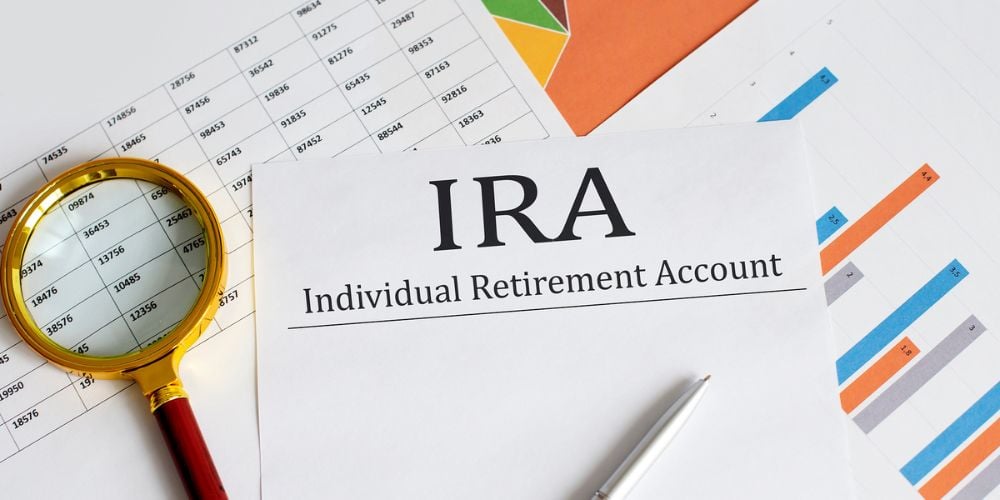Retirement savings are sacred. A critical component of many individuals’ savings strategy is an Individual Retirement Account (IRA). An IRA is a special type of account that provides various tax benefits.
However, you may find yourself considering rolling over your IRA into an annuity for added financial security.
But, can you roll an IRA into an annuity?
We know that the annuities are insurance products that can provide a steady stream of income during retirement. But, we will dig deep into this subject in the form of this article.
Can You Roll an IRA into an Annuity?
Absolutely; rolling your IRA into an annuity is a legitimate financial move. You can transition from an IRA to an annuity without the burden of incurring immediate taxes.
It’s because the Internal Revenue Service (IRS) views an annuity as a retirement account. This option creates an opportunity to secure guaranteed income during retirement.

Advantages of Rolling an IRA into an Annuity
When you transition from an IRA to an annuity, you tap into significant benefits. One of the main perks is a tax-free rollover. You will not owe taxes on the money until you withdraw it during retirement.
Next, annuities offer a secure income stream. You can get a guaranteed income during your retirement. It provides the financial stability that many seniors are looking for.
These are just a few benefits. There are others worth exploring with a financial advisor based on your personal situation.
Drawbacks of Rolling an IRA into an Annuity
Despite the benefits, potential drawbacks need your attention. Annuities often come with fees. These fees can reduce the overall return on your investment.
Make sure you fully understand the cost structure before moving funds from an IRA to an annuity.
Further, withdrawal rules can cause financial strain. Often, taking money out of an annuity earlier than planned results in penalties. It can restrict your financial flexibility.
How to Roll an IRA into an Annuity?
To roll an IRA into an annuity, you must first choose the right annuity for your situation. It could be a fixed, variable, or indexed annuity. Each type differs in terms of risk and return.
Next, you’ll need to set up your annuity. Many insurance companies provide this service. Next, you need to initiate a direct rollover from your IRA to your annuity. Ensure to fill out the paperwork correctly to avoid potential tax liabilities.
Understanding Different Types of Annuities
Before rolling your IRA into an annuity, it’s crucial to understand the various types available, as each serves different financial goals and risk tolerances. Fixed annuities offer a guaranteed rate of return and payment amount, making them suitable for those seeking stability in their retirement income.
Variable annuities, on the other hand, allow your contributions to be invested in the stock market, offering the potential for higher returns with more risk.
Lastly, indexed annuities provide a hybrid option, with returns linked to a market index’s performance but with a guaranteed minimum return.
Choosing the right type depends on your financial situation, risk tolerance, and retirement goals. A financial advisor can help navigate these options to find the best fit for securing your financial future in retirement.

Considerations Before Rolling an IRA into an Annuity
Before rolling an IRA into an annuity, it’s essential to weigh some factors. For instance, consider the timing. The benefits of an annuity are more significant if you’re closer to retirement.
Also, think about your health. Annuities are a long-term investment. If your health is at risk, you might not live long enough to take full advantage of the guaranteed income.
Lastly, always seek professional advice in this process.
Common FAQs on Rolling an IRA into an Annuity
Several frequently asked questions often arise about rolling an IRA into an annuity. For instance, individuals often inquire if they can roll an IRA into an annuity without penalty.
The answer is yes. As long as you follow the rollover rules, the process should be tax-free until you start taking withdrawals.
Another common question involves the rules for an annuity rollover. It’s important to know that you must complete the rollover in 60 days to avoid tax penalties.
Finally, individuals often ask if IRA annuity withdrawals are taxable. Yes, they are. These withdrawals come as ordinary income and are subject to federal and, potentially, state income taxes.
Conclusion
Deciding to roll your IRA into an annuity is a significant financial step. It has benefits like a tax-free transition and a guaranteed income stream. Yet, it also has potential drawbacks such as fees and restrictive withdrawal rules.
Always weigh the advantages against the potential pitfalls. Consider your individual circumstances and seek professional advice when you’re charting out your financial future.


 Tags:
Tags:










